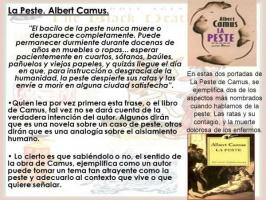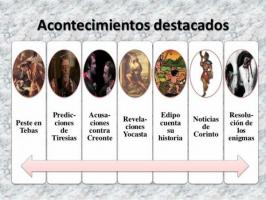Uses of italics and quotation marks

It is quite common confuse the use of italics with that of quotation marks. Although it is true that in some cases they can be interchanged, as a general rule each of these spellings has a well-defined and established use. Along with the use of capital letters, italics and quotation marks are two of the most widely used spelling resources when it comes to point out that a word or group of words has a special or different meaning to that corresponding to the common vocabulary of a language. For this reason it is essential to use them properly.
From a Professor we want to offer you the necessary guidelines so that you know in what contexts and with what functions it is used in Spanish the italics and in which the quotation marks, with the ultimate goal that you be able to use them correctly according to the spelling norm Spanish. Keep reading and discover the uses of italics and quotation marks in our language.
Also called italic In some word processors, italics, as its good name indicates, is one that is characterized by being formed from slightly curved lines; that is, tilted to the right. This peculiarity is what differentiates the cursive letter from the round letter, with more vertical and straight lines:
qualification - qualification.The main functions of italics they are, on the one hand, giving emphasis to the selected word (s) and, on the other, pointing out to the reader the foreign origin of a term (be it foreignness, for example best seller, or a Latinism, like a priori) or its character as a neologism or what is the same, a word recently incorporated into the linguistic system.
Likewise, italics also indicate whether the word belongs to a specific jargon or is being used metalinguistically; that is, it resorts to the use of a specific word to speak of itself linguistically, such as:
- Table it is a word with four letters.
Similarly, the use of italics is necessary when writing titles of works, newspapers, records, television series, paintings, movies, etc., regardless of the language in which belong to: One Hundred Years of Solitude, El País, Friends, Las Meninas, Titanic.
Italics in journalistic language
On the other hand, within journalistic language, italics play completely different roles. The press uses italics when it comes to collecting voices outside the Spanish orthographic, phonetic or semantic system. In addition to this general and basic use, italics can be found in subtitles of newspaper articles, in order to provide secondary or less important explanations regarding the main title, which is always in print round.
In the case of newspaper and magazine interviews, it is quite frequent to use italics to ask the interviewee questions and, on some occasions, vice versa; that is, the responses of the interviewee are those that are written in italics.
In this other video we give some spelling rules for writing acronyms.
We continue with this lesson on the uses of italics and quotation marks. This second linguistic resource has three different types of quotes in Spanish:
- Latin, Spanish, low or angular quotation marks: «».
- English or high quotation marks: "".
- Single quotes: ' '.
In principle, the use of one or the other is indifferent; that is, one or the other can be used interchangeably. Now, in the event that there is a quotation within a sentence already enclosed in quotation marks, it is recommended that the lower quotation marks are used first, in the longest sentence and reserve the other two to enclose the quote inserted in the sentence principal.
The main use of quotation marks is based on limiting the textual quotes ("Come here immediately" my mother told me), thoughts and reflections of the characters literary titles or the titles of articles, poems or chapters of a book or a collection ("Which deals with the condition and exercise of the famous nobleman Don Quixote de la Stain").
In addition, the use of quotation marks alternates with italics when writing foreign words (although the I founded recommends the use of italics in this case) in addition to those words used with an ironic value, different from its original meaning, as in the following example: You are very "smart".



